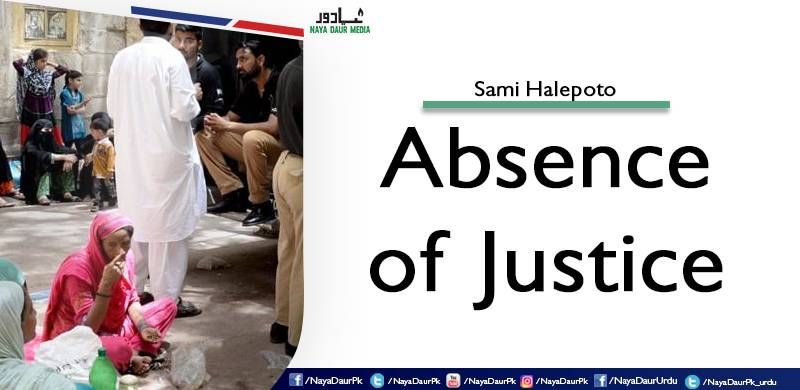
Be it religion or government, or even humankind, justice and equity play is a fundamental prerequisite. From hundreds of years old logicians to the cutting-edge law specialists, each researcher requests and desires justice. It is the bedrock of a prosperous society, but it isn’t the case in our state where individuals have been detained for a long time and they are dead when their final decision is heard.
There was an incident in 2014 where a man got Justice after more than 19 years but he had passed in prison two years ago. He was Mazhar Hussain, a resident of Dhok Haider Ali, Sihala. It was only his family members who came to know that the court had absolved him of the homicide allegation.
That’s why the World Justice Project (WJP) ranked Pakistan as 105th country out of 113 countries in World Justice Framework. Even Bangladesh and Kenya have a superior equity framework than us. And when justice is denied, people tend to take law into their hands.
In Pakistan, our toothless laws are not by any means the only reason behind the terrible situation, as there are other various other variables too. For example, the lawyers drag the cases on by seeking next date for hearing instead of pursuing the matter.
It is a known fact that the courts in our country are currently focused on hearing prominent cases — like Memogate and Panamagate — only that attract media attention and are considered truly newsworthy, while hundreds of thousands of others are pending.
The most significant issue is that there are too few judges to deal with an excessive number of cases. Consequently, there is urgent need to fill the vacant positions and create new ones too in the higher and lower judiciary.
But there is another problem. In any equity framework, the job of police is both pivotal and indispensable. In our country, the very sight of a police officer draws scorn and ridicule from the people in general. The Pakistani police is heavily politicised and by and large equipped to serve the political elite, not the people.
The abovementioned reasons illustrate the state of our equity framework which has been ineffective in serving the people.
Here are a few recommendations to change and streamline our equity framework. Firstly, our police ought to be depoliticised.
Secondly, the judiciary needs legal changes. Cases ought to be heard on the basis of legitimacy and there ought to be a particular time allotment for the settlement of cases.
Thirdly the legislature should set up a free legal help administration which will guarantee assistance to those poor who can't manage the cost of extravagant expenses of the legal advisors.
There was an incident in 2014 where a man got Justice after more than 19 years but he had passed in prison two years ago. He was Mazhar Hussain, a resident of Dhok Haider Ali, Sihala. It was only his family members who came to know that the court had absolved him of the homicide allegation.
That’s why the World Justice Project (WJP) ranked Pakistan as 105th country out of 113 countries in World Justice Framework. Even Bangladesh and Kenya have a superior equity framework than us. And when justice is denied, people tend to take law into their hands.
In Pakistan, our toothless laws are not by any means the only reason behind the terrible situation, as there are other various other variables too. For example, the lawyers drag the cases on by seeking next date for hearing instead of pursuing the matter.
It is a known fact that the courts in our country are currently focused on hearing prominent cases — like Memogate and Panamagate — only that attract media attention and are considered truly newsworthy, while hundreds of thousands of others are pending.
The most significant issue is that there are too few judges to deal with an excessive number of cases. Consequently, there is urgent need to fill the vacant positions and create new ones too in the higher and lower judiciary.
But there is another problem. In any equity framework, the job of police is both pivotal and indispensable. In our country, the very sight of a police officer draws scorn and ridicule from the people in general. The Pakistani police is heavily politicised and by and large equipped to serve the political elite, not the people.
The abovementioned reasons illustrate the state of our equity framework which has been ineffective in serving the people.
Here are a few recommendations to change and streamline our equity framework. Firstly, our police ought to be depoliticised.
Secondly, the judiciary needs legal changes. Cases ought to be heard on the basis of legitimacy and there ought to be a particular time allotment for the settlement of cases.
Thirdly the legislature should set up a free legal help administration which will guarantee assistance to those poor who can't manage the cost of extravagant expenses of the legal advisors.
